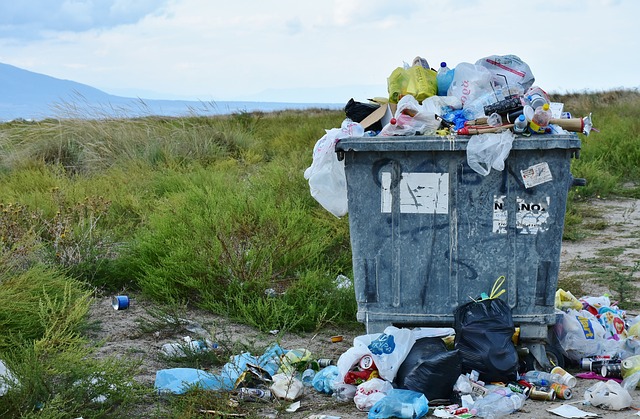By DOROTHY HOOD
ANNAPOLIS — Maryland lawmakers are considering a bill designed to reduce packaging pollution while shifting the cost for disposal onto packaging producers, rather than taxpayers.
HB 284 will prohibit producers of packaging materials from selling or distributing their materials unless the producer has an approved producer responsibility plan, and failing to hit the plan targets can incur fines. The bill will require the Department of the Environment to conduct a statewide recycling needs assessment every 10 years, penalizing producers who are less sustainable and produce more packaging materials. The manufacturers producing packaging that is more eco-friendly will pay less.
Sponsored by Del. Sara Love, D-Montgomery, said “the producer responsibility program puts the onus on the producers and incentivizes them to make more sustainable choices.” Love said that the money from this producers’ tax will fund local governments as a way to shift responsibilities.
Of the 52 witnesses for this bill heard in the Environment and Transportation Committee on Feb. 22, 43 were in support, including Dan Felton, executive director of the American Institute for Packaging and Environment.
Felton said in the hearing that AMERIPEN sees, “a path forward under a good producer responsibility program that can actually address some of those issues.” AMERIPEN said that this bill “strikes the right balance.”
“Packaging makes up 28% of Maryland’s waste stream, of which 40% is plastic,” said Laurie McGilvray, an advocate with the Climate Justice Wing a statewide coalition focused on getting state-level climate justice.
U.S. Environmental Protection Agency data shows “containers and packaging make up a major proportion of municipal solid waste.” In its 2018 report, that amounted to 82.2 million tons nationally for the year.
According to the Environmental Defense Fund Supply Chain Solutions Center, “9.2 billion tons of plastic have been produced, of which only 9 percent has been recycled properly.” The figures run from 1950 through 2017. Because plastic isn’t biodegradable, “every piece of plastic ever made is still on this planet.”
Single-use plastics commonly make their way into waterways and oceans, and in Maryland, the Chesapeake Bay is highly affected. Maggie Ostdahl, conservation policy manager at the National Aquarium, testified in favor of this bill.
She explained that plastic breaks down into smaller pieces called microplastics, which endanger wildlife, contaminate the global food web and transport harmful toxins that are harmful to human health.
This bill is cross-filed in the Senate as SB 222, sponsored by Sen. Malcolm Augustine, D-Prince George’s. As more single-use plastic is produced, the more it negatively impacts our environment, Augustine said, adding that what we can do is “create a more circular economy for our packaging materials.”
Augustine said he introduced this bill in 2022, which was cross-filed in the House with now-Comptroller Brooke Lierman as chief sponsor when she was a delegate. Unfortunately, it didn’t get very far, but he has higher hopes for the current one, especially with a new governor.
“It takes time for people to get a sense of ways that we may be able to fix things,” Augustine said.
Maine, Oregon, California and Colorado have already passed packaging materials regulation. Augustine said it is now time for Maryland to do the same.
Waste in our ecosystems has gotten worse and not better, Augustine said, and Marylanders are acknowledging that.
“Maryland taxpayers currently bear the sole burden of paying to manage and dispose of waste,
including packaging,” said Lierman in written testimony to the committee.
Maryland Association of Counties Associate Policy Director Dominic Butchko said in the Feb. 22, hearing that counties and taxpayers are the ones paying for most of the operating and infrastructure for recycling. This bill will “make producers a stakeholder.”
“You have a choice in front of you. Right now a private company makes a choice on how they are going to package their material and then it is up to taxpayers to pay for that choice,” Butchko said.
Maryland PIRG, a small donor-funded public interest advocacy organization, was also in support, “recycling can’t solve our waste problem by itself,” said State Director Emily Scarr. The organization said the state should “aggressively enact measures to reduce waste and move away from packaging that causes harm to the planet and public health.”
The bill is awaiting a vote from the committee.




Recent Comments